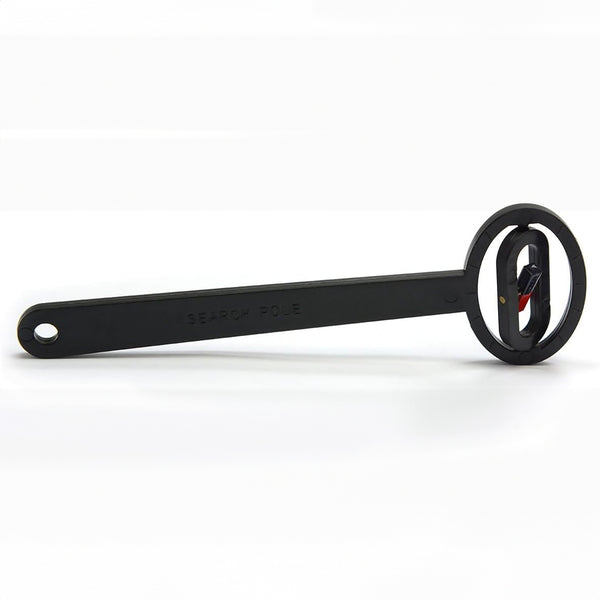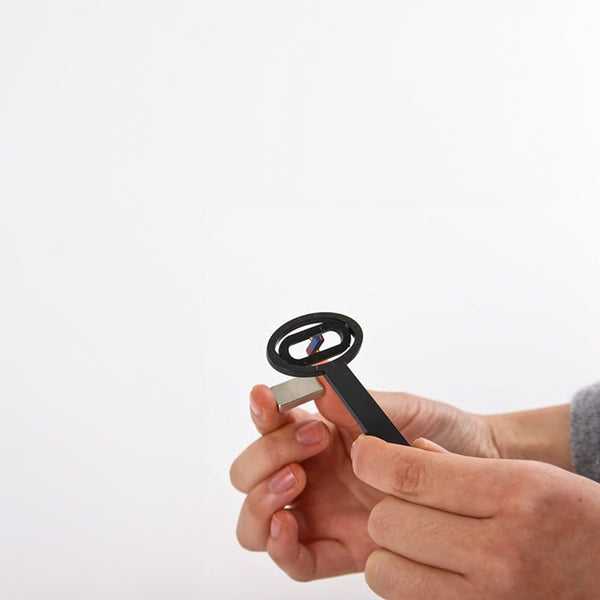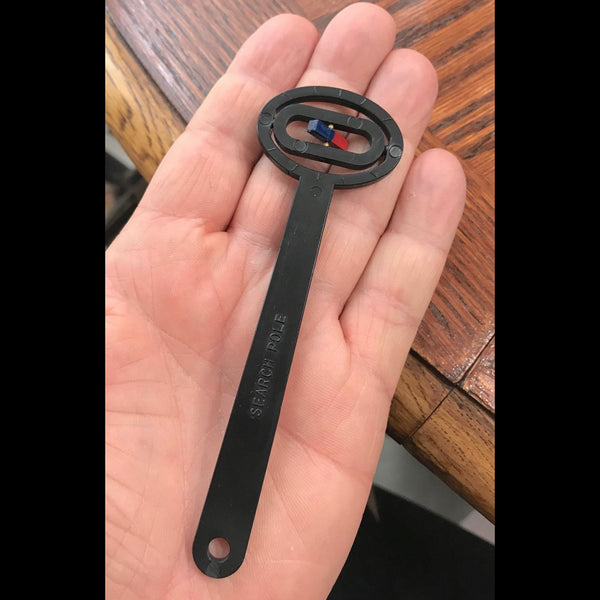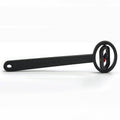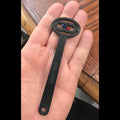Magnetic Pole Identifier
Product code: SW711001
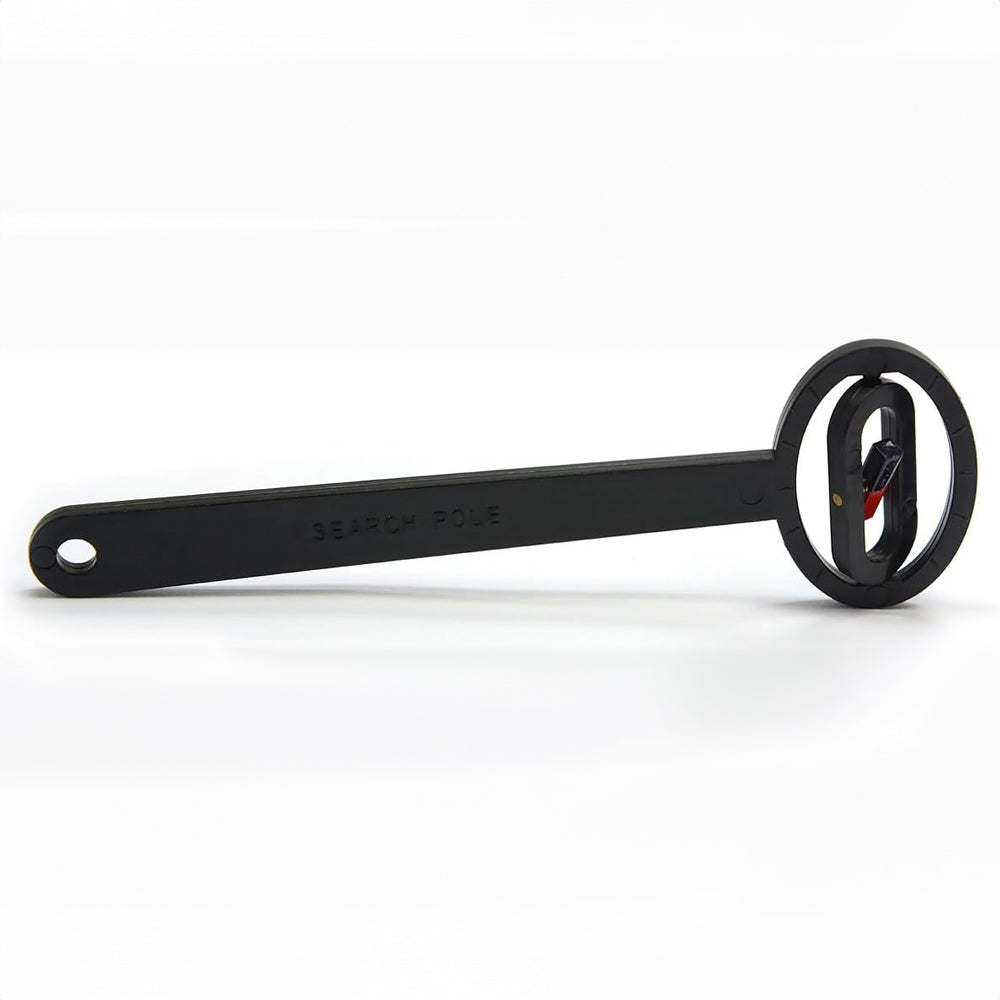

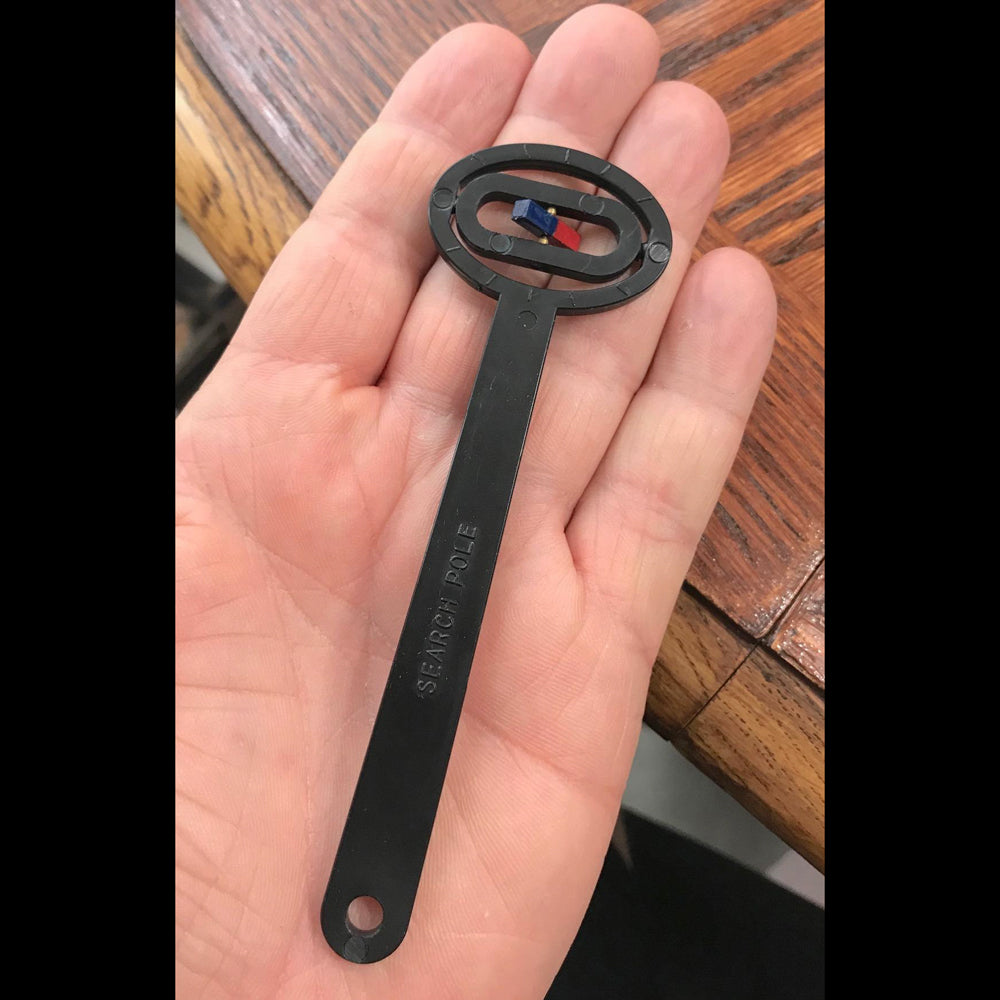
Prices are GST Incl.
Request a Quote for Bulk OrdersAustralia's Leading Supplier
Shipping Worldwide*
30 Day Returns
Same Day Dispatch*
Utilise this Magnetic Pole Identifier to determine the north and south poles of magnets.
This professional tool is essential for accurately identifying the poles of magnets, as it features a small magnet painted on both ends that can rotate freely within a plastic housing.
The blue end indicates the SOUTH pole, while the red end indicates the NORTH pole.
This innovative tool is also useful for demonstrating the direction of magnetic field lines, which connect the North and South poles of a magnet. By simply moving the Pole Identifier near a magnet, the small magnet inside will rotate and align itself with the magnetic field line, providing a clear indication of direction.
A convenient and accurate tool, the Magnetic Pole Identifier uses a small alnico bar magnet on a gimbal to demonstrate the 3-dimensional magnetic force field. It offers a more efficient alternative to traditional methods that involve compasses and iron filings, making it perfect for experiments on the forces between magnetic poles, fields produced by electric currents, and more.
No FAQ available
Utilise this Magnetic Pole Identifier to determine the north and south poles of magnets.
This professional tool is essential for accurately identifying the poles of magnets, as it features a small magnet painted on both ends that can rotate freely within a plastic housing.
The blue end indicates the SOUTH pole, while the red end indicates the NORTH pole.
This innovative tool is also useful for demonstrating the direction of magnetic field lines, which connect the North and South poles of a magnet. By simply moving the Pole Identifier near a magnet, the small magnet inside will rotate and align itself with the magnetic field line, providing a clear indication of direction.
A convenient and accurate tool, the Magnetic Pole Identifier uses a small alnico bar magnet on a gimbal to demonstrate the 3-dimensional magnetic force field. It offers a more efficient alternative to traditional methods that involve compasses and iron filings, making it perfect for experiments on the forces between magnetic poles, fields produced by electric currents, and more.
No FAQ available






